
PMVA Training
Prevention and Management of Violence or Aggression for Teams in NHS and Healthcare
Please note that we do NOT deliver 'open' training
for individuals who are not currently employed with a service.
Hundreds of safer clients
Hospitals and Healthcare
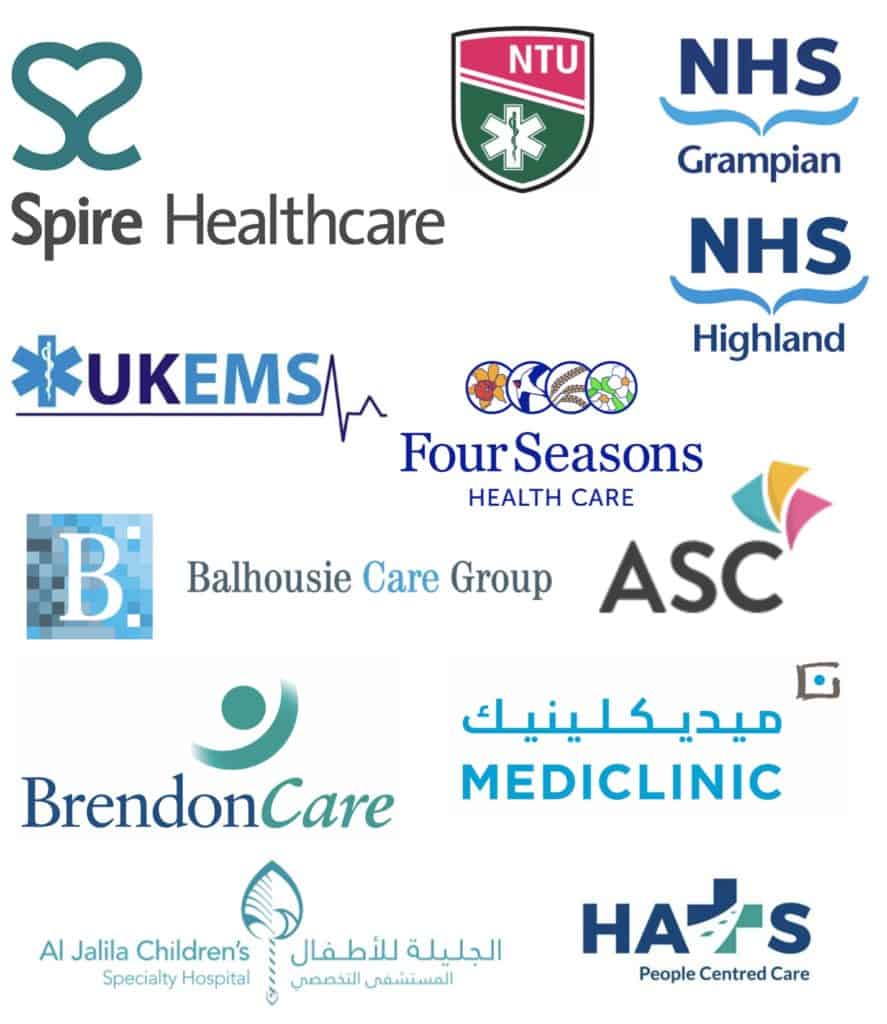
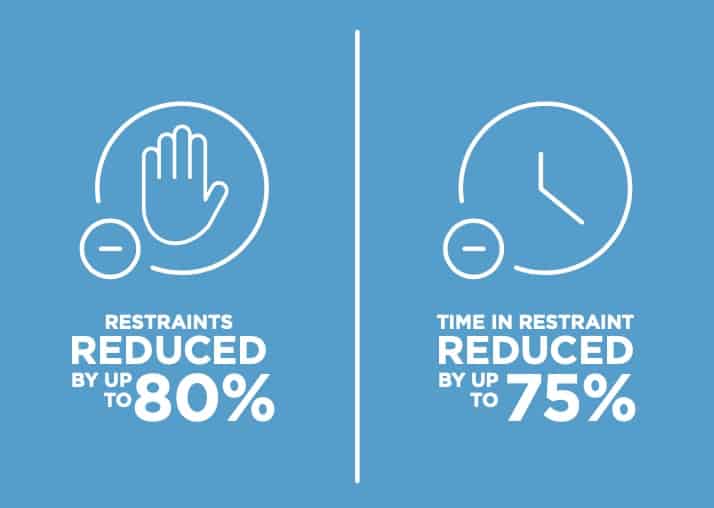
Prevention and Management of Violence and Aggression
Training in PMVA for Your Care Team
PMVA Training helps to reduce the risks of violence and aggression in your service by developing staff knowledge, skills and attitudes to effectively employ de-escalation skills, breakaway and disengagement tactics or control and restraint interventions appropriately within the context of their service users, residents, patients and clients. The training meets NHS Protect standards in conflict resolution and physical intervention.
Our PMVA courses develop three levels of prevention and management of violence and aggression:
- Proactive strategies to prevent incidents of aggression or violence
- Retro-active strategies to defuse and de-escalate an emerging situation
- Reactive Strategies to Minimize injury risk and regain control of a situation.
Your team will learn to safely apply appropriate non-restrictive or (where necessary) restrictive physical interventions as alternatives to the primary non-escalation and secondary de-escalation strategies which we will help you to put in place.
Vulnerable Adults and Older People
Because of the immediate relevance your staff see in your course design and delivery, they are engaged, motivated and Energized during and after the training.
Mental Health Patients
Because sessions are all driven by your own scenarios, issues and challenges with the people you meet in your work, it has immediate relevance and transfers directly to your day-to-day workplace.
Hospital
Security
Your teams get many, many opportunities to learn and practice their new skills during 'countless reps' of the target skills, actively learning in every session. There doesn't need to be endless PowerPoints!
Children in School and Care
With highly targeted new skills, your teams can make measurable changes to their interactions and truly realise your organisation's safety ethos, focussing on dignity and respect, safety and wellbeing.
Learning outcomes
Three-tier model
skills
Learning Outcomes:
On completion of this PMVA training, your staff team* will be able to:
-Apply the legal principles of Reasonable Force to high-risk scenarios
-Apply the principles regarding Duty of Care to scenarios of high-risk
-Identify situations which may give rise to the risk of sudden death during restraint or of serious injury during an incident
-Understand that physical restrictive interventions are reactive strategies which are used in conjunction with proactive, preventative strategies
-Use tactics which encourage movement by prompting
-Use tactics which enable them to safely escort a compliant but unpredictable person from one place to another
-Employ control tactics for rapidly unfolding situations where they need to keep themselves and a vulnerable but physically-able subject subject safe from harm
-Employ control tactics in higher-risk situations where there is a risk that they might lose control and thereby allow harm to come to themselves, a colleague or the vulnerable (but physically capable) subject they are looking after
record an incident clearly in a way that allows another person to understand their actions in the circumstances which faced them
-Communicate with their subject and with each other in a way which promotes the most positive outcomes in difficult and rapidly-unfolding circumstances
*Please note that we do not run “open” courses for individuals to enrol on at the current time.
UNDERPINNING KNOWLEDGE of RISK and LAW
The Principles of Reasonable Force
Common Law
Criminal Law
Care Legislation
Care Act
Mental Health Act
Mental Capacity Act
DoLS
Decision-Making in regard to the Duty of Care
Health and Safety at Work Act
Management of Health and Safety at Work Regulations
Health and Safety Offences and Corporate Manslaughter
Manual Handling Operations Regulations
Government and National Guidance
NICE NG10
NICE NG11
NICE Violence: Short Term Management
Positive and Proactive Care (Department of Health)
Human Rights Act
Article 2
Article 3
Article 5 and others
Reducing the Risks of Sudden Death During Restraint
Positional Asphyxia and Excited Delirium
Recognising Warning Signs in Restraint Interventions
INCIDENT DECISION-MAKING for PMVA:
Core Person-Centred Values for Dealing with Distressed, Resistant, Dangerous Behaviour
Legal, medical and professional implications of incidents involving PMVA
Risk assessment (both formal and informal) during episodes of PMVA
Legal and medical implications
Good practice following PMVA incident management
UNDERSTANDING DISTRESSED BEHAVIOURS
The Kaplan/Wheeler Model of the Assault Cycle
Brain function and Aggression/Stress
Recognising the cues for Primal/Social behaviours
The SCARF Model of influences on human behaviour
7-Phase model of incident management and recording
CONFLICT RESOLUTION for PMVA
Treating every person with Dignity and Showing them Respect
Having the correct attitudes needed for conflict resolution
Initiating contact with patients service users, visitors and other staff in a non-escalatory way
Discovering and Dealing with people’s communicated needs through listening and empathy
Managing resistance through appropriate persuasion and influencing skills
Deflecting and Redirecting verbal aggression through focus on key goals
Working with the audience and bystanders to positively influence conflict
Knowing when to disengage from conflict
PMVA PHYSICAL SKILLS
Proxemics, Prompting and Escorting
Fundamentals of Self-Protection
Survival from Common Assaults
Principles for Prompting and Escorting
Less-Intrusive Holding and Restraint Principles
More Restrictive Physical Restraint Interventions
Disengagement Methods
Advanced Control Tactics (for Higher-Risk environments)
Our Process for Working with You
Communication Skills
Your teams will model and practice appropriate verbal skills for preventing and de-escalating conflict.
Behavior Awareness
Your team will develop their awareness of Behavior cues and the ways in which situations can trigger distress, anger or emotional disturbance.
Teamwork during incidents
Your team will have to work together to solve problems, learning along the way how to think and to communicate as a team.
Self-Protection
Your team will be challenged to develop personal safety habits and perform robust, appropriate self-protection tactics in many different scenarios.
Legal Rules for Restrictive Practice
Your team will reflect on the legal basis for their actions, assisting in effective reporting.
Restraint Reduction Principles
Your team will be challenged to embody restraint-reduction principles in each scenario they work through.
Risk Awareness
Every restraint carries risk, so your team must learn how to navigate options and reduce the risk of adverse outcomes through serious injury or death.
Holding Skills
Your team will develop flexible skills to perform safe holding, control or restraint appropriately to the level of risk and the vulnerability of the person they engage with.
How we adapt our PMVA Training for different environments and contexts.
We have delivered tailored PMVA Training Course programmes for a wide variety of clients such as those listed here, where you can read about how we worked successfully to deliver their objectives for the training:
Please note that we do NOT deliver 'open' training
for individuals who are not currently employed with a service.
With over 15 years of experience working with clients, we are confident that we can gain an understanding of your issues, resources, timeframes and budget quickly and soon propose a training plan which fits your needs.
Please note that we do NOT deliver 'open' training
for individuals who are not currently employed with a service.
Our Process for Working with You
The power of evidence-based training
High Staff Engagement
Because of the immediate relevance your staff see in your course design and delivery, they are engaged, motivated and Energized during and after the training.
Better Transfer to the Workplace
Because sessions are all driven by your own scenarios, issues and challenges with the people you meet in your work, it has immediate relevance and transfers directly to your day-to-day workplace.
Time Well
Spent
Your teams get many, many opportunities to learn and practice their new skills during 'countless reps' of the target skills, actively learning in every session. There doesn't need to be endless powerpoints!
Measurable Change Happens
With highly targeted new skills, your teams can make measurable changes to their interactions and truly realise your organisation's safety ethos, focussing on dignity and respect, safety and wellbeing.
HI! I'M GERARD O'DEA
Director Of Training At Dynamis
Hi and thanks for visiting our website today.
In over 15 years of working with frontline staff who face difficult, distressed and dangerous behaviour, i have seen time and again how prepared staff can perform well and respond to challenging circumstances.
From teachers to nurses, teaching and care assistants to security officers in our hospitals and social workers in the community, if you deal with people every day, managing conflict becomes a necessity.
I became involved in this work because i saw the power of training and preparation in helping people to stay safe at work and to be more successful in working with their colleagues to create better outcomes.
I and my team of professional trainers now teach in over 200 training engagements every year around the uk and internationally for a wide variety of public-facing organizations just like yours.
We have sought out the best conflict management training content and the best learning methods in the world and bring them together for you and your team.

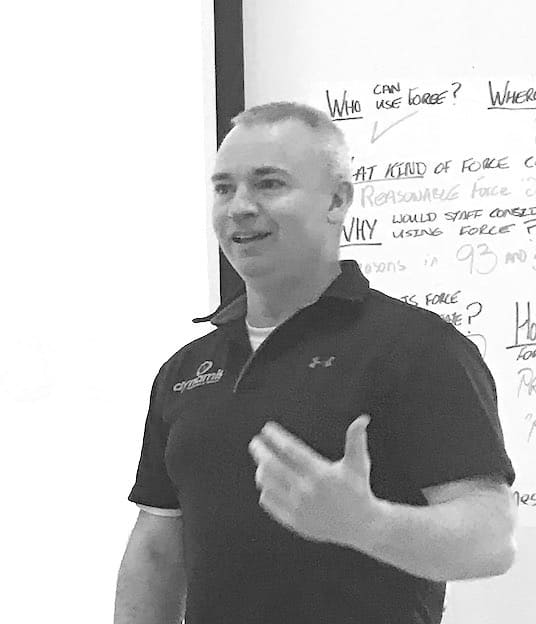
Join Over 3,000 Happy Customers
What our customers are saying:

Best Course I have attended in the NHS...
“This was by far the best course I’ve attended in the NHS. Fit for purpose, current, relevant and extremely well delivered. 10/10 for delivery, professionalism and structure.”
ANDY W. // Security Management Specialist
Informative and Enjoyable...
“A very professionally run training course, Gerard was a very knowledgeable and relaxed instructor who put the group at ease and made the day both informative and enjoyable.”
STEPHEN B. // Ambulance Care Assistant
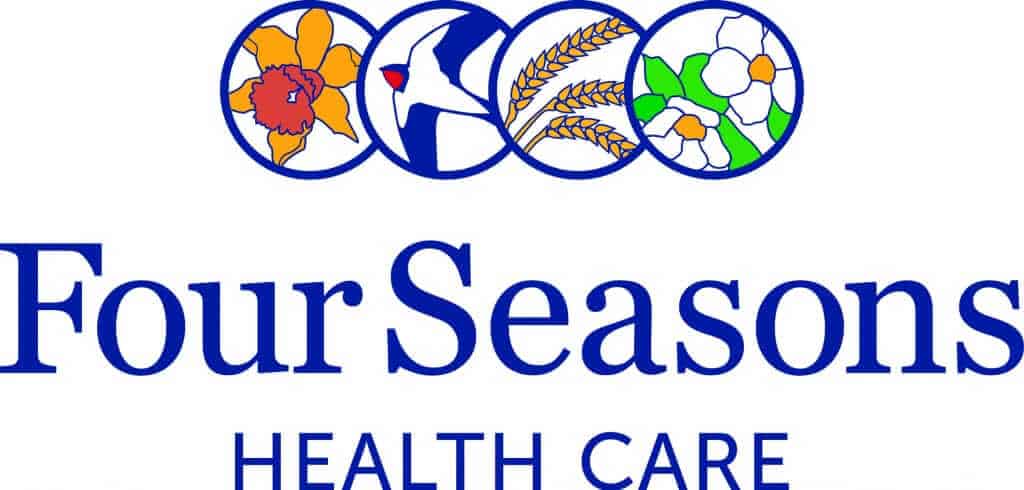
Brought in real life situations...
"I was very nervous about this training but it was a great environment and he made us feel at ease and was encouraging. I liked how he brought in real life situations to make the training more relatable.”
Natalie C. // Dementia Care Senior Support

A really impressive course enabling excellent care...
“Exceeded all the criteria we needed to achieve, interesting, interactive, informative and enjoyable. A really impressive course in all aspects, my team came away visibly more confident and closer as a team, I am certain the experience will give us the right foundations enabling excellent care to the patients we manage. a sincere thanks.”
Director of Care and Quality // UK EMS
WHAT OUR CUSTOMERS ARE SAYING
Feedback from Learners About Our Training
Thousands of learners with Dynamis Since 2006
Course Met or Exceeded Expectations
Trainer Was Very Good or Excellent
Training was Relevant and Appropriate
Our Partners and Accreditation
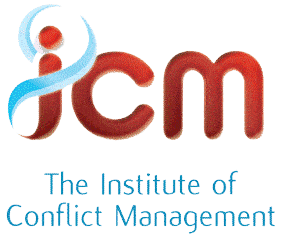
MEMBER OF THE INSTITUTE OF
CONFLICT MANAGEMENT
Dynamis is a Quality Award Centre with the ICM, a recognised accrediting body in the U.K. for workplace training in the prevention and management of workplace violence.
REGIONAL REPRESENTATIVE FOR 9 ATTITUDES BEHAVIOURAL TACTICS
Dynamis represents the 9 Attitudes system, a fully behavioural approach to self-protection and physical control which is based on the observable realities of physical confrontation.
Frequently Asked Questions
Usually the training venue will be our client's responsibility and full details of this are made clear around the time of booking so that you know what we are going to need to give your people the best possible experience of training with our team.
We have often helped our clients to source appropriate training venues, where that assistance was requested!
Due to the nature of our training approach, we often require a good-sized training room which has the capacity for your team to move around in and in which we can set up scenarios which are as close as we can get them to real-world applications of the material we teach your people.
Our training costs are often calculated on a per-day basis and directly related to the Needs Analysis which we carry out with you.
We are constantly working to make sure that the investment level is reasonable and competitive.
We generally ask for an investment which takes into account the type of content we are going to work on with your staff, the numbers of staff involved, the risk level of the encounters they engage in and the number of days of training which will be required to get your people up to the proper standard.
We are VAT registered and all pricing sent to you is 'plus VAT at the prevailing rate'.
We also charge travel expenses which you should discuss with our training advisor so that these are as clear as possible as you book in your training course.
Our training advisor is waiting to have a call with you to discuss your timelines and preferred schedule. We generally book training 4-6 weeks out from today, however we always have been able to respond to clients who need training 'as soon as possible' when urgent needs pop up. The sooner we talk with you, the sooner we can get the training in place!
There are numerous formats which we use to deliver training with your team, whether it be a large group or a smaller team. We know that the best group sizes for learning depend on the complexity of the material to be covered, the amount of time we have with your people and also the constraints you may be working with in your budget and resources. Most of our clients put 12-16 people in our less-physically demanding training courses, and often fewer people than this into our more demanding courses. Let's talk about the best solution for your needs....
Dynamis has attained the respected Quality Award Centre status (QAC #2201) with the Institute for Conflict Management (ICM), demonstrating our commitment to quality assurance and strict adherence to the most recent guidance on the management and prevention of workplace conflict. All our trainers are fully qualified and attend CPD development on a regular basis in accordance with ICM requirements.
Our goal is that you see a tremendous improvement in your team's ability to prevent and manage difficult encounters with the people in your service, so we focus on making sure that each training session with your people feels directly connected to their everyday work and is compliant with the relevant guidance which governs it.
100%
You are fully protected by our 100% Satisfaction-Guarantee. If you are not fully satisfied by the training we deliver for your team, just let us know and we'll send you a prompt refund.
Gerard O'Dea